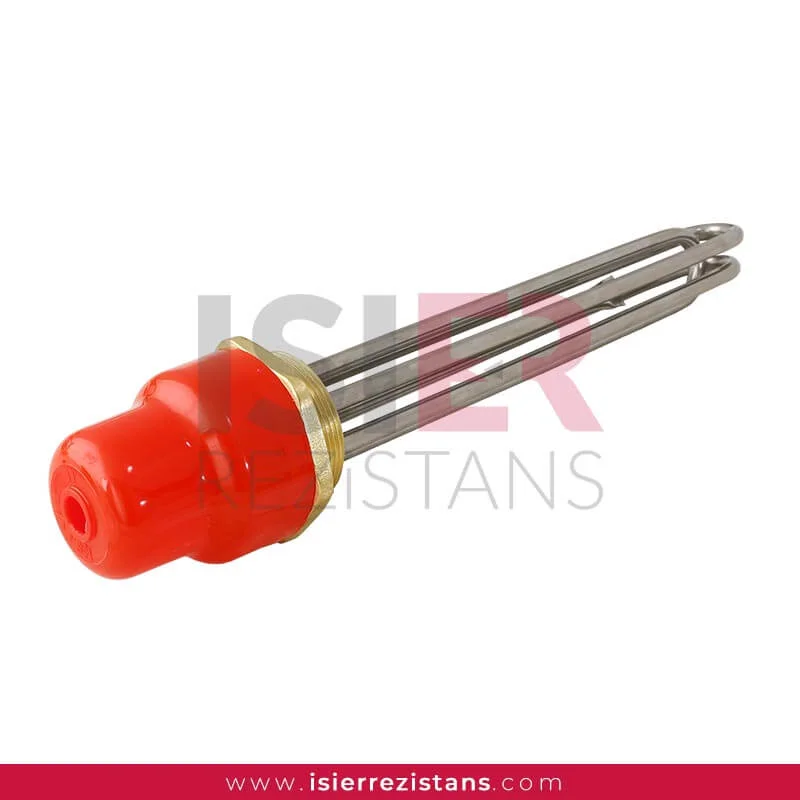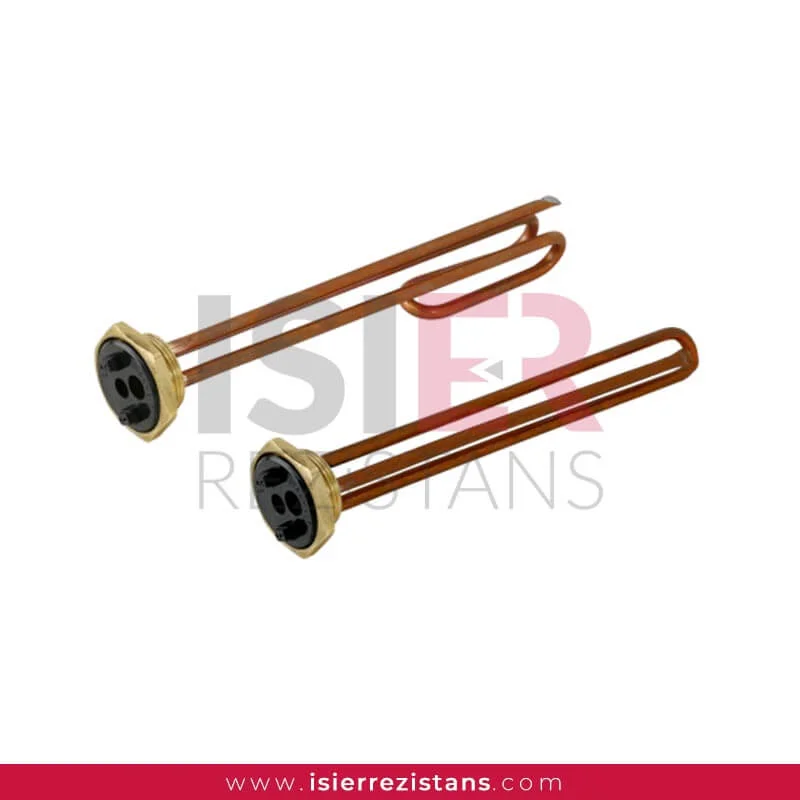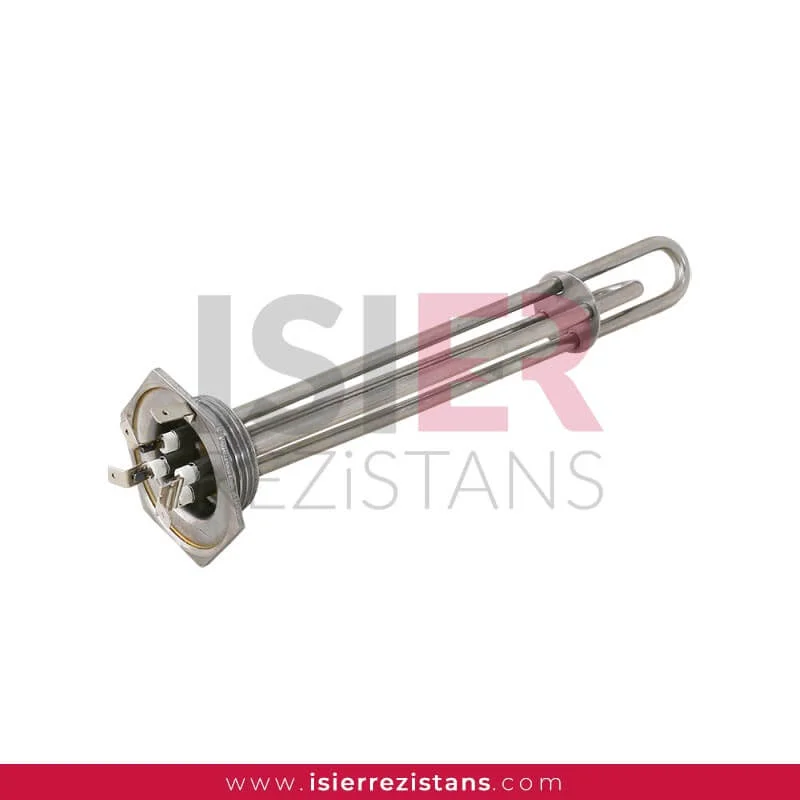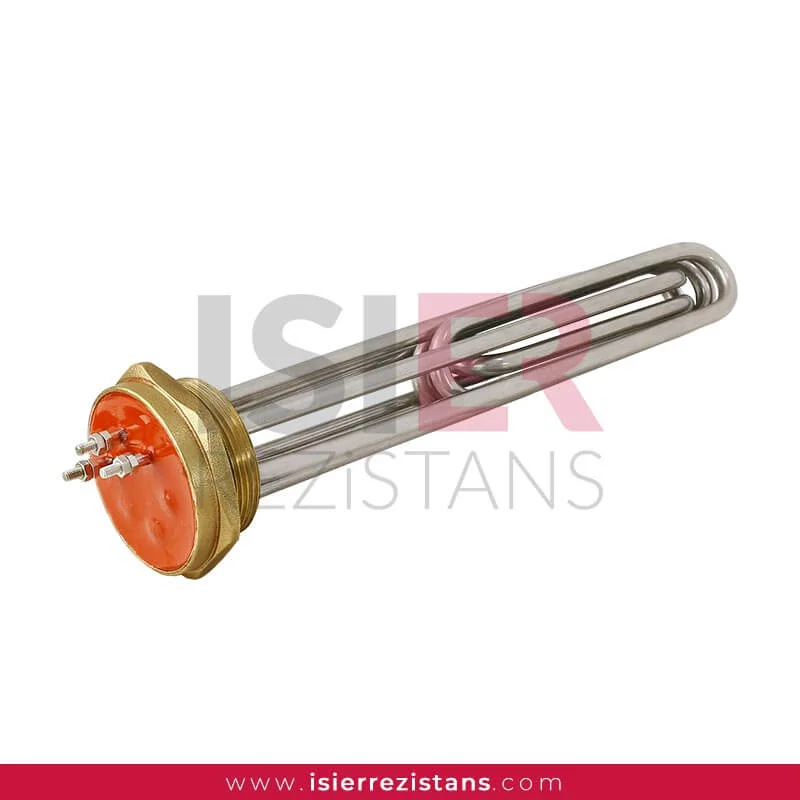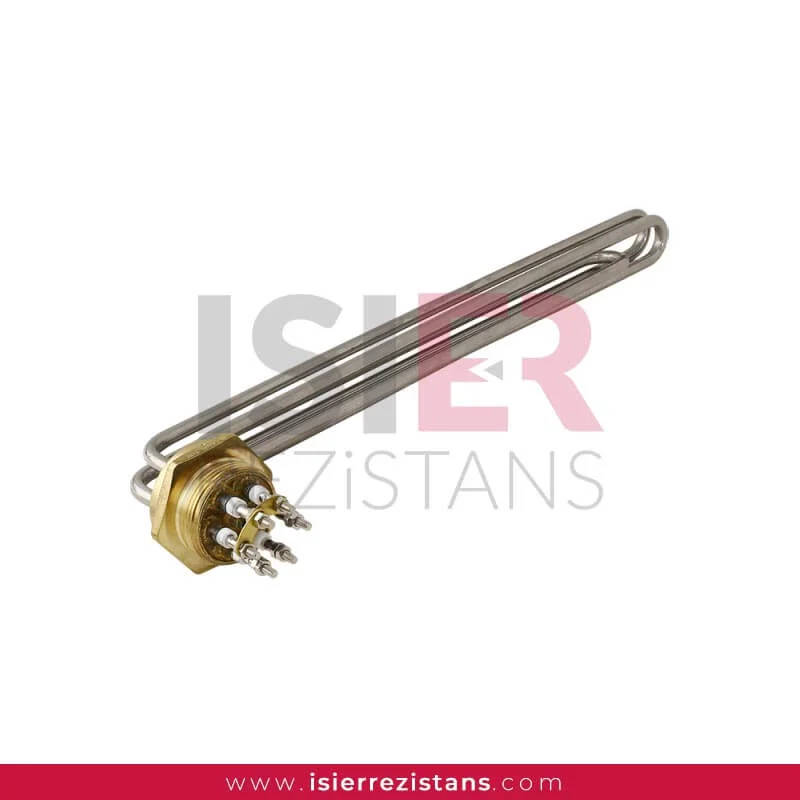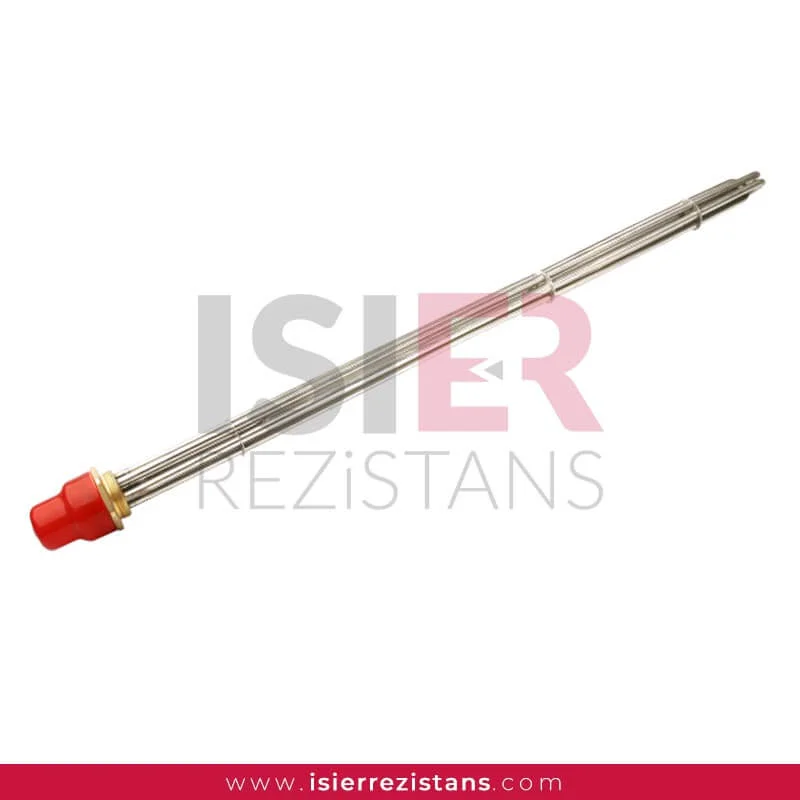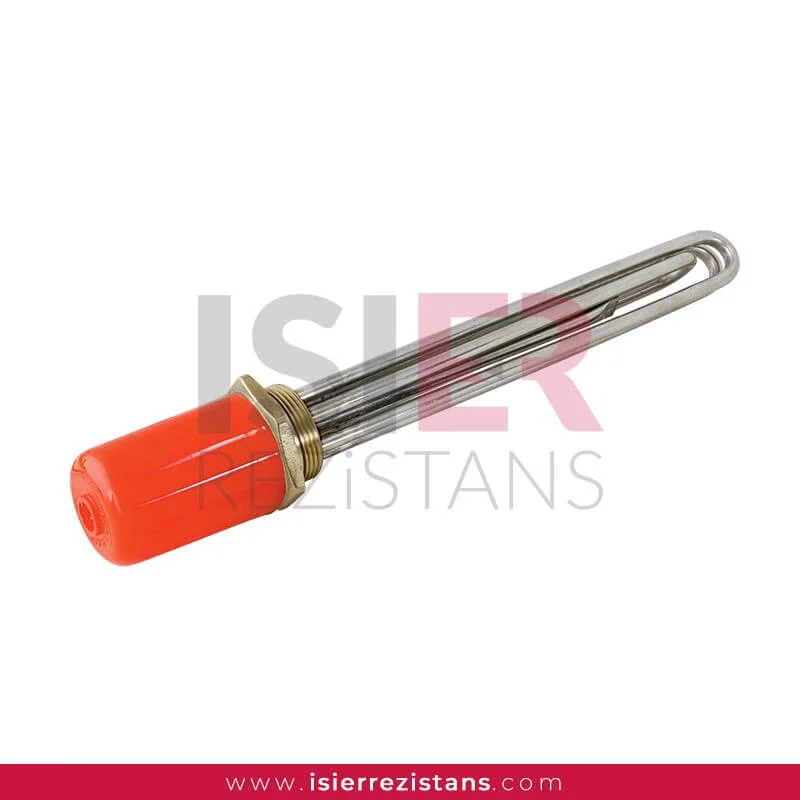Boiler Heaters
Boiler heaters are heating elements used in industrial boilers. They are usually made of nickel-chromium or iron-chromium-aluminum alloys. These specially designed resistances provide the required temperature in processes by quickly and effectively heating water or other heat carrier liquids in boiler systems.
Isıer Rezistans’ boiler heating elements meet customers’ expectations by offering excellent performance and reliability in industrial heating systems. On our website, customers can learn more about boiler heating elements and find the right solution for their specific needs.
What are the Technical Specifications of Boiler Heaters?
Heater resistors typically include a range of technical specifications, which are often customizable according to specific application needs. However, generally, here are some fundamental technical specifications that heater resistors may have:
Material: Heater resistors are typically made of high-resistance heat-resistant alloys such as nickel-chromium (Ni-Cr) or iron-chromium-aluminum (Fe-Cr-Al). These materials provide resistance to high temperatures.
Power Capacity: The power capacity determines how much heat the resistor can generate for a specific size and design. This is usually expressed in watts.
Voltage and Current Values: The operating voltage and current values of heater resistors must be suitable for the electrical system in which they are used. These specifications are important for electrical safety and system compatibility. For example, a resistor may have a nominal voltage of 220V or 380V.
Length and Diameter: The length and diameter of the resistor are designed to be suitable for a specific application and boiler type. Length is usually measured in millimeters.
Resistance Value: The resistance value of the resistor is determined based on material and design specifications. Resistance measured in ohms indicates how much the resistor heats up under a specific voltage.
Temperature Range: Heater resistors are designed to operate within a specific temperature range. This temperature range ensures the resistor operates safely and effectively.
Protection Class: The protection class of the resistor indicates its resistance to water and dust. Especially if used in damp or challenging environments, having a high protection class is important.
Connection Type: Heater resistors may have different types of connections. For example, threaded, flanged, or other special connection types may be available.
These technical specifications play a crucial role in determining the performance and compatibility of heater resistors. Therefore, selecting specifications suitable for a particular application or boiler type is critical for a healthy and efficient heating system.
Why Should Boiler Heaters be Preferred?
Heater elements, known as boiler heaters, are heating components that offer a range of advantages and play a significant role, particularly in industrial heating applications. Here are some reasons supporting the preference for boiler heaters:
High Efficiency: Boiler heaters effectively convert energy to provide high efficiency, helping to reduce energy costs and optimize operational expenses.
Rapid Heating and Cooling: Boiler heaters possess rapid heating and cooling capabilities, enabling quick response to temperature changes in the system and supporting energy savings.
Longevity and Durability: Manufactured from high-quality materials, boiler heaters exhibit longevity and durability, resisting wear, high temperatures, and other challenging conditions.
Flexible Design: Boiler heaters can be customized in various sizes, power capacities, and connection types, offering flexible solutions for different boiler types and application requirements.
High-Temperature Applications: Boiler heaters can effectively be used in processes requiring high temperatures in industrial applications, making them a common choice in sectors such as metallurgy, chemistry, and energy production.
Easy Maintenance and Repair: Boiler heaters are typically designed to be easily accessible for maintenance, helping to reduce operational disruptions and maintenance costs.
Environmentally Friendly: Operating on electric energy, boiler heaters offer an environmentally friendly heating solution by eliminating fuel usage, thus supporting efforts to reduce carbon footprints.
Easy Integration: Boiler heaters can be easily integrated into various types of boilers, allowing them to seamlessly adapt to existing systems or newly installed ones.
In conclusion, boiler heaters are preferred for their advantages such as energy efficiency, longevity, flexibility, and effectiveness in various application areas. These features can address the needs of many businesses seeking reliable and efficient heating solutions for industrial heating systems.
In which sectors is it used?
Heater elements, with a wide range of industrial applications, are commonly utilized in various sectors. Here are some industries where heater elements are frequently employed:
Metallurgy and Metal Processing: In the metallurgical sector, heater elements are used as high-temperature heating solutions in facilities such as metal melting furnaces, foundries, and rolling mills.
Chemical Industry: Heater elements are used in the chemical industry to provide high-temperature control for chemical processes and to support specific reactions.
Energy Production: In thermal energy production facilities, boiler heater elements are used in steam generation and other energy production applications.
Food Industry: Heater elements are preferred in boiler systems used for cooking, drying, or processing products in food processing facilities.
Automotive Sector: Heater elements are widely used in paint drying ovens and heating systems in the automotive industry.
Paper and Pulp Industry: Heater elements are commonly found in boiler systems used for drying and other heating applications in paper and pulp production facilities.
Construction and Building Materials: Heater elements are used in boiler systems for producing hot water or steam used in concrete mixing and other construction material production processes.
Electronic Industry: Heater elements are utilized in the production of electronic components and soldering processes.
Oil and Gas Industry: Heater elements are used in refinery facilities and the petrochemical industry to meet specific heating needs.
Textile Industry: Heater elements can be preferred in textile factories for fabric drying and other heating applications.
In these industries, heater elements are used in various applications to provide reliable and effective heating solutions at high temperatures.




